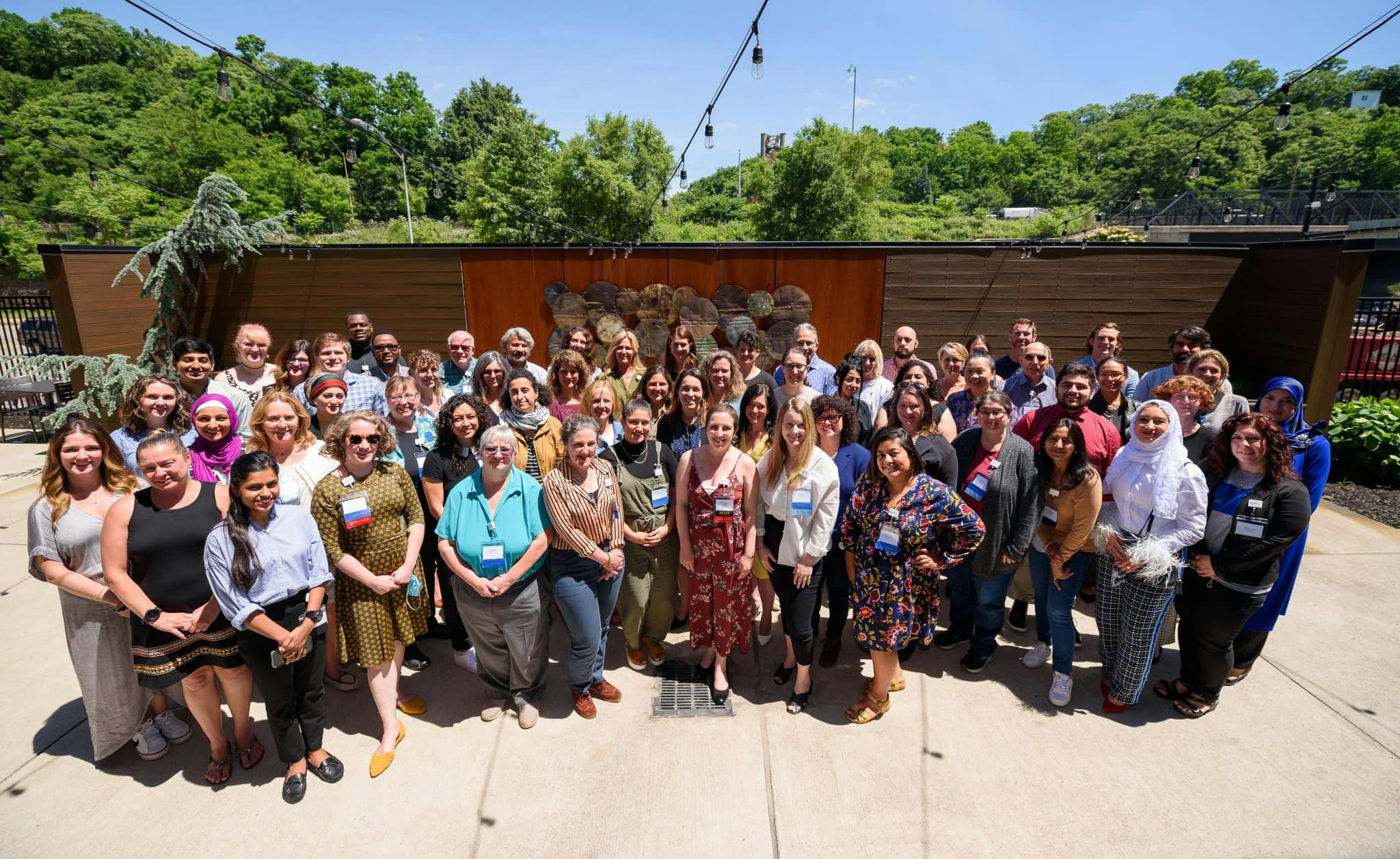Before the afternoon of September 19, 2015, our team had only read about Joyce in the 2013 Pink Ribbon Red Ribbon Annual Report. Her glowing smile...
Before the afternoon of September 19, 2015, our team had only read about Joyce in the 2013 Pink Ribbon Red Ribbon Annual Report. Her glowing smile lights up page 9 of the document, alongside her story.
Meeting Joyce at the airport in Dallas was like seeing a long lost friend after many years. She was traveling outside of Zambia for the first time, to share her story on a panel for the Global Women’s Network, held at the George W. Bush Presidential Center on September 21 and 22.
In 2013, Joyce was one of a few nurses selected to receive training under Pink Ribbon Red Ribbon’s partnership with Zambia. She and her peers learned the “see-and-treat” single-visit approach to screen women for cervical cancer with household vinegar and, if they find a lesion, to remove it with cryotherapy, a process used to freeze abnormal areas of tissue on the cervix. She is also trained to perform clinical breast examinations on clients.
During the “see-and-treat” training, she realized that over the three decades of her nursing career, though she counseled women to take care of themselves by making their health a priority, she had not done so herself. She had never been screened for cervical cancer.
As the training went on, a friend echoed her thoughts and advised her to get screened. She heeded her friend’s advice, and the result was the discovery of a pre-cancerous lesion. Her initial response was fear, soon followed by gratitude. She received treatment, and was confident that she had done the right thing. She could continue to be a mother to her children, and a nurse to many, because a health care worker had detected the lesion before it could develop into cervical cancer.
Joyce says that many women who come to get screened have a fear of the unknown; others are fearful that their marriages will suffer because of the six-week period of abstinence recommended for those who receive cryotherapy. Joyce understands where these women are coming from because she experienced the same fear and uncertainties, and she can empathize with them.
In addition to her work in the hospital, she joins mobile outreach teams that travel to rural areas of Zambia to offer health care, including screening for cervical cancer. According to Joyce, mobile outreaches are a lifeline for women who are otherwise occupied with putting food on the table and just cannot afford to leave their day’s work to get screened.
While Joyce was in Dallas, with the help of the National Breast Cancer Foundation, she recorded a video to encourage women to be aware of their breast health.
She also visited Susan G. Komen, where she gave a well-attended presentation on her experience as a nurse in Zambia.
Now, back home in Zambia, Joyce says that she feels it is her job to tell every woman she meets to get screened. At church, she has already requested an opportunity to speak to the women in the congregation to highlight the importance of early detection.
Joyce is a champion for women, and Pink Ribbon Red Ribbon is proud to partner with her.
Erica Asante, MPH, is a Manager of Country Programs for Pink Ribbon Red Ribbon.




























